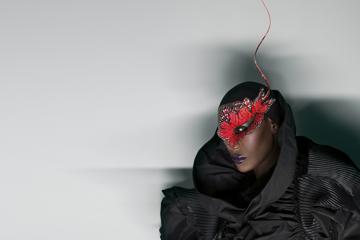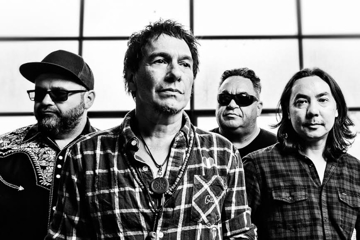What Separates The Australian Music Prize From Other Awards
“Australian artists are there and are being taken seriously."

If you don’t agree with the 2017 Australian Music Prize shortlist, it probably means the judging panel have done their job correctly, as chairman Dave Faulkner tells Daniel Cribb.
“[The AMP] is not just a simple yes-no vote, it is actually kind of more nuanced than that,” the Hoodoo Gurus frontman begins. “Our number one thing was to try and get away from what I think is a failing of other awards, where it’s a popularity contest and the least offensive albums get the most votes because they don’t polarise people as much as some that are a bit more extreme.”
Last year saw AB Original take out the $30,000 cash prize with their powerful and acclaimed debut album Reclaim Australia, and this year’s shortlist contains another eclectic batch of artists, including Jen Cloher, Paul Kelly, Sampa The Great and more. The winner will be revealed – and decided – this Friday, March 9.
“Scott Murphy, when he put the prize together, he liked the idea of it being something that no one would ever know until right before it happens,” Faulkner explains. “And that’s what we do, we meet in the morning right before the announcement happens and we decide then and there.”
Don't miss a beat with our FREE daily newsletter
The meeting isn’t as heated as you might think - it’s the shortlist debates that see various judges go head to head over certain releases, which isn’t surprising given the 13th AMP saw judges listen to more than 400 Australian albums.
Narrowing that down to 45 acts for the long list is hard enough. “The actual record companies and the people behind the ARIAs, for example, they kind of shake their heads at the AMP sometimes and I know that’s been happening this year; I’ve been hearing about it from other people,” he tells.
A couple of albums that many thought should have made the cut included Gang Of Youths’ ARIA Album Of The Year Go Farther In Lightness and Methyl Ethel’s Everything Is Forgotten. “Methyl Ethel was really close to the finish and just narrowly missed out on a place,” he reveals. “There are so many albums that happens to.”
“With the ARIAs, the problem is everyone thinks, ‘That’s a really good album; that’s got the best chance,’ and they put that one forward, whereas something else that may be a little more exciting and maybe hasn’t got such big support in the label itself - it’s a bit more of an outsider - that won’t even get anywhere near an ARIA.”
With that said, Faulkner’s quick to point out the AMP isn’t without its own issues. “Our problem is that we sometimes are a little bit in our cliques; where we’re from, what our experiences are, but we try and always to diversify our judging panel,” he says.
“From the beginning, the AMP has had a lot of female representation and it’s been 50% or close to it for a long time now and we’re now also adding judges who are a little bit less from the inner-city ghetto or indie-rock.”
The AMP has come a long way since The Drones took out the inaugural award back in 2005, and Faulkner has seen some exciting develops in Australian music since then. “We’re just becoming part of a global market,” he tells.
“We’re seeing musicians in UK articles in interviews saying how much they’re influenced by Tame Impala – years gone by that wouldn’t have been a commonplace thing.
“Australian artists are there and are being taken seriously; it’s not a battle anymore to convince people it’s possible that someone could come from Australia and be any good.”
The 13th AMP will be unveiled this Friday, March 9.







